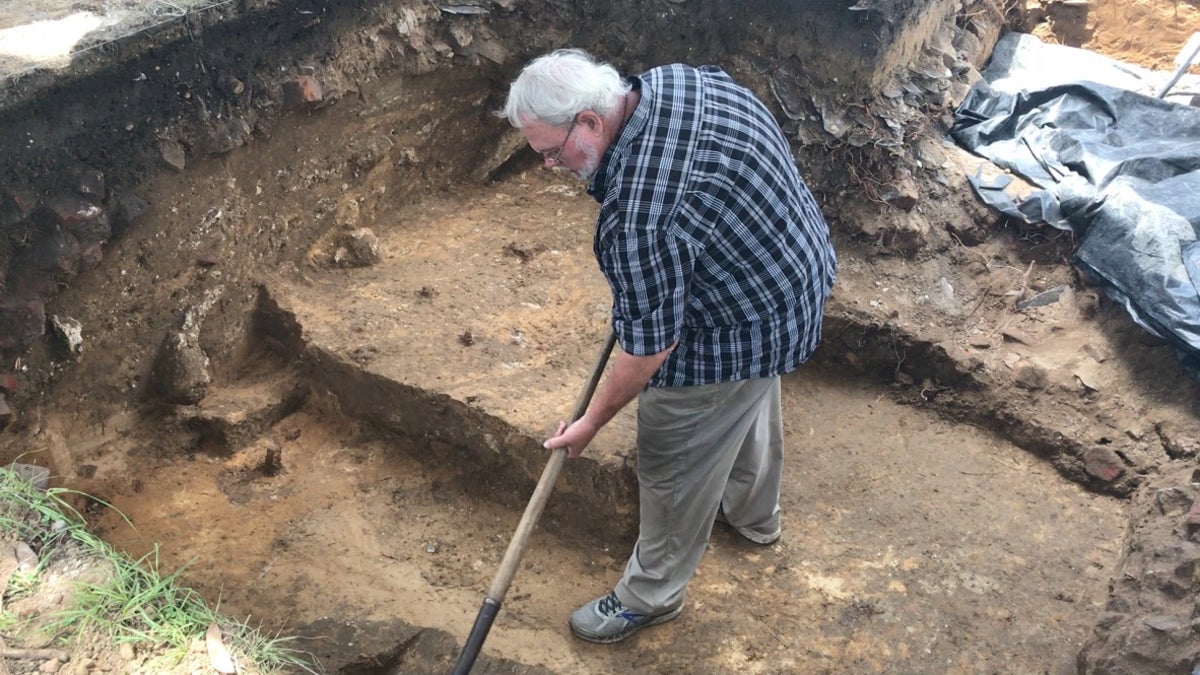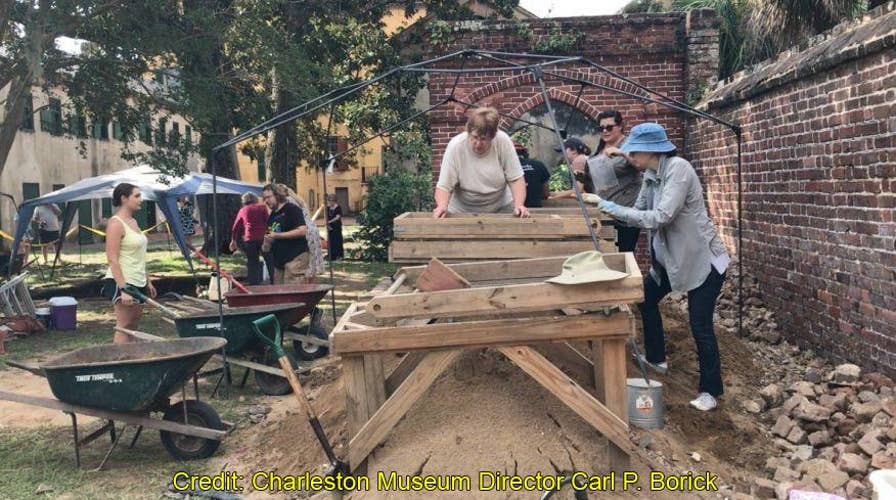Students discover Revolutionary War era musket ball
Students from the College of Charleston's Archeological Field School discovers an Revolutionary War relic during excavations in the back lot of the historic Aiken Rhett Housein.
First-of-its-kind archeological evidence of the Revolutionary War has been uncovered by a team of students in a major South Carolina city.
Students participating in College of Charleston's Archeological Field School discovered a roughly .60 caliber musket ball last week during excavations in the back lot of the historic Aiken-Rhett House. It was the first confirmed piece of physical evidence of British siege lines in the state.
Charleston Museum Director Carl Borick has been searching for the 1780 siege line for nearly 15 years. "Based on these artifacts, my research and the archaeologists' assessment of the mottled soil in the trench, we have pretty much confirmed it was part of the British siege lines during the 1780 siege."
Curator of Historical Archeology at The Charleston Museum Martha Zierden led the team of nearly a dozen after ground-penetrating radar revealed a high ground disturbance.
As the students worked, the director of museums for the Historic Charleston Foundation, Lauren Northup, led tours around the site explaining in detail what they hoped to discover.
"We have worked for three weeks to uncover evidence of a suspected revolutionary war seize trench dug by the British in 1780," Northup told Fox News. "We are nearing the end of the field school and we have finally reached the trench."

A volunteer digs through layers of soil searching for bullets and buttons from the Revolutionary War. (Fox News)
Northup says the British-built trenches were open only for a short period of time. "A trench was built very quickly and it was really meant to transport troops safely behind earthworks," she explained. "Basically once they dug it and passed through they then filled it back in."
RETIRED ARMY CAPTAIN FIGHTING FOR VETERANS WITH PTSD
Students like Jacob Coumingnemetz said it was a great way to get into the field of archeology or anthropology. "You're learning all the skillsets, learning how to do the research, learning how to read documents, recognize artifacts, dig all the units."
On the last day of their excavation, the team was tasked with searching for various artifacts like iron, bullets or buttons.
"We are really trying to find the things that people dropped in that trench in the very brief amount of time that it was open," Northup said after a tour around the dig site.
VIDEO: EMPOWERING VETERANS WITH K9 TEAMMATES
She said she hoped this discovery would help with future excavations. "We have no archeological ordinance in Charleston that protects sites like this," Northup said. "It is so important that we enforce an archeological ordinance in this city to protect sites like this for the future."
In the meantime, members from the foundation plan to seek grants or other funding to continue their research.
"Now that we ended up having a battlefield in our backlot I think the onus is on us to study more and find out more and hopefully have more archeology in this backlot to see if we can uncover larger parts of this trench," the director of museums said.


